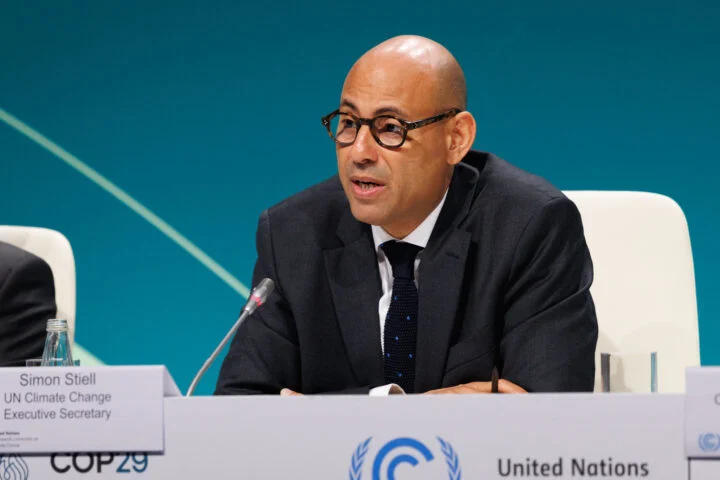Simon Stiell, Executive Secretary of UN Climate Change (UNFCCC) has said that the new national climate plans (NDCs) – due from all countries ahead of COP30 – are “really about growth” and “are an antidote to economic uncertainty”.
Stiell made this known while presenting a speech at the 2025 Nature Summit in Panamá which coincides with the first of the newly reconfigured Climate Weeks resuming this year, also taking place in Panamá City. The new format has a strong focus on real-economy solutions, and aims to bridge the gap between technical dialogues, stakeholder engagement and real-world implementation.
According to Stiell, “Clear and strong climate policies are an antidote to economic uncertainty.
Climate policy can help get trade flowing and economies growing. And prevent wildly destructive climate impacts. Providing signals from governments to markets.
To those investors ready to hit the ‘go’ button on huge investments.
Read also: EU trains 5,000 Imo farmers to combat climate change
“That’s why a new generation of national climate plans – or NDCs – are utterly essential. Here in Latin America, and all around the world.
“In the past, climate plans have often focused mainly on cuts – cuts to greenhouse gas emissions and to old-fashioned energy. This new generation of climate plans are really about growth. Growing industries and economies. And building a better future. One where nature is protected, and where people have better opportunities.
“Done right, these plans can attract a bonanza of benefits. More jobs. More revenue. And a virtuous cycle of increased investment.
“But unless it’s implemented, an NDC is just a piece of paper. That’s why political leadership now, is so important.
“And the political and policy signals from almost all of the world’s largest economies are very clear: global decarbonization is unstoppable and continues to gather pace and scale.
“From rapid technological advancements in Electric Vehicle charging, to breakthroughs in energy storage, all while the costs of wind, solar, and so many more clean technologies keep coming down.
“And it’s backed by hard data – more than 90% of new energy last year was renewable.
“It’s clear in the words and deeds of the leaders who get it. Brazil, putting nature at the heart of their climate plan. Germany promising to invest billions in climate action to increase security. China, for the first time, saying it will set a new national climate target that covers every greenhouse gas and sector of the economy.
“This isn’t only because of their better environmental angels. It’s because global decarbonization is the biggest economic transformation of our age, making it one of the biggest commercial opportunities we’ve ever seen.”
He said, “Cooperation makes all of us more prosperous. Every country wants to take advantage of a $2 trillion clean energy market.
Story was adapted from Thisday.
